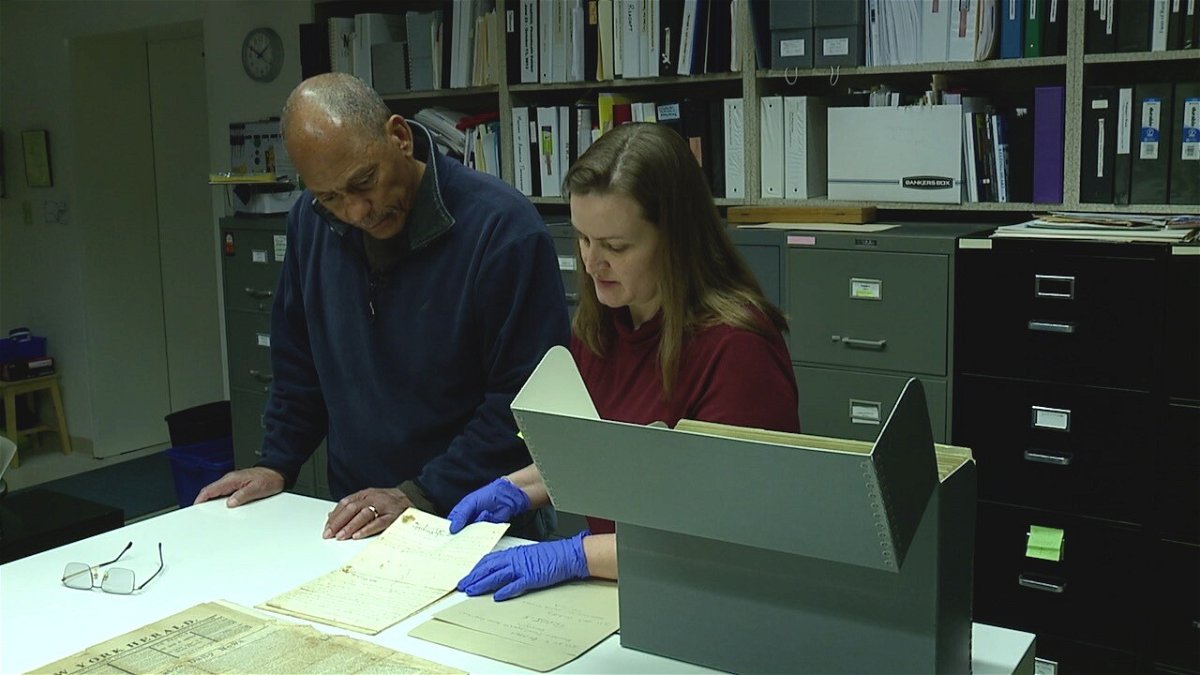Missing History: Massillon Museum collects, shares unheard African American stories

A Northeast Ohio community is filling the gaps of its missing history. The Massillon Museum has been collecting
Click here for updates on this story
MASSILLON, Ohio (WEWS) — A Northeast Ohio community is filling the gaps of its missing history. The Massillon Museum has been collecting, documenting and sharing untold African American stories.
The concept of “Missing History of Massillon: Unheard African Americans Stories” began in 2020 when widespread racial justice demonstrations encouraged Americans to confront racism.
“It was called to our attention where we absolutely had not shared enough Black stories, especially as it relates to Massillon history,” recalled Mandy Altimus Stahl, an archivist at the Massillon Museum.
Massillon, situated on the banks of the Tuscarawas River in Stark County, has been called “The City of Champions.”
“It’s always been a football town. We all know that,” laughed Alex Wood, who is back in his hometown after years of coaching on the collegiate and professional levels.
Football, which gained popularity as a pastime among the city’s factory workers in the 1890s, still inspires passion among its residents: from the miniature footballs placed in the cradles of newborns to the success of Massillon High School’s Tigers to the long list of professional athletes and coaches produced by the town.
“It had, obviously, a great deal of influence on me. I got the football too back in – well I won’t tell the year – but a long time ago. And I played here,” Wood said. “Now in my career, I’m a coach, I’m a football coach. Imagine that, huh?”
Where the town’s football heritage inspires pride, so too does its history.
“I’m still miffed and don’t understand why American history and African American history is not one in the same,” Wood said. “It should never be parsed out as being separate.”
One of the city’s more visible symbols of Massillon’s abolitionist history is a documented stop on the Underground Railroad. Visitors can tour the Spring Hill Historic Home settled by a Quaker family, and see the hidden stairway and attic room where they aided enslaved persons on their journeys to freedom.
“It’s a little easy to point to slavery and the Civil War and then point to the Civil Rights movement, but there’s so much more,” Altimus Stahl said of the city’s African American history.
In 2020, the Massillon Museum began combing through its own collections and seeking information and artifacts from the community to bolster its content related to Black history.
“There are so many amazing stories that people shared with us and that we were able to find even within our own archives,” said Altimus Stahl.
She showed Wood and News 5 several historic documents, including a set of manumission papers from a couple who moved to Massillon after purchasing their freedom in the 1830s. She also shared an 1865 copy of the Galveston Daily News published shortly after Juneteenth.
“[It was published] just a couple of days after everyone was finally informed that they were free a couple of years ago,” she told Wood.
“I can feel it, the relief that came over those folks’ faces,” Wood responded emotionally. “And then there’s a lot of other stuff that people had to deal with, even after that, to try to establish some normalcy, respect, dignity, still fight through the propaganda wars, false narratives… But you know what? To me, it’s inspirational because we’re still here standing 40.1 million strong.”
The museum has amassed more than 4,000 scans of historic documents and photos. Additionally, it conducted numerous interviews with living residents and city leaders. A 2022 exhibit has been immortalized with an online 3D experience.
“We all belong. And I think that’s our message,” said former Massillon Mayor Kathy Catazaro-Perry.
She joined a committee to help plan Massillon’s first city-run Black History Month event on Feb. 16, 2024.
“The more we include and accept and talk about our life’s history and where we have been and where we are going – I think that’s where accepting others, including others is so important,” Catazaro-Perry said.
Others who took part in the Missing History project agreed with the sentiment.
“It’s important to preserve those stories so that we know where we came from,” Altimus Stahl said. “What challenges did we face here in Massillon and how did we overcome them?”
Wood added, “It’s important for all folks to understand the history, everybody, because I think that brings about better understanding, more cooperation, more empathy towards other folks’ stories and I think that’s needed.”
Please note: This content carries a strict local market embargo. If you share the same market as the contributor of this article, you may not use it on any platform.

